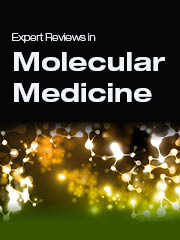Crossref Citations
This article has been cited by the following publications. This list is generated based on data provided by
Crossref.
Liu, Kui
Rajareddy, Singareddy
Liu, Lian
Jagarlamudi, Krishna
Boman, Karin
Selstam, Gunnar
and
Reddy, Pradeep
2006.
Control of mammalian oocyte growth and early follicular development by the oocyte PI3 kinase pathway: New roles for an old timer.
Developmental Biology,
Vol. 299,
Issue. 1,
p.
1.
Rexhepaj, Rexhep
Grahammer, Florian
Völkl, Harald
Remy, Christine
Wagner, Carsten A.
Sandulache, Diana
Artunc, Ferruh
Henke, Guido
Nammi, Srinivas
Capasso, Giovambattista
Alessi, Dario R.
and
Lang, Florian
2006.
Reduced intestinal and renal amino acid transport in PDK1 hypomorphic mice.
The FASEB Journal,
Vol. 20,
Issue. 13,
p.
2214.
Akinci, Ozkan I.
and
Budinger, G R. Scott
2006.
Phosphoinositide-3-kinase γ: Is it really pivotal for ventilator-induced lung injury?*.
Critical Care Medicine,
Vol. 34,
Issue. 1,
p.
251.
Rosivatz, Erika
2006.
Interactions of synaptojanin.
Signal Transduction,
Vol. 6,
Issue. 2,
p.
101.
Svensson, E
Vidovic, K
Lassen, C
Richter, J
Olofsson, T
Fioretos, T
and
Gullberg, U
2007.
Deregulation of the Wilms' tumour gene 1 protein (WT1) by BCR/ABL1 mediates resistance to imatinib in human leukaemia cells.
Leukemia,
Vol. 21,
Issue. 12,
p.
2485.
Burnham, Carey-Ann D.
Shokoples, Sandra E.
and
Tyrrell, Gregory J.
2007.
Invasion of HeLa cells by group B streptococcus requires the phosphoinositide-3-kinase signalling pathway and modulates phosphorylation of host-cell Akt and glycogen synthase kinase-3.
Microbiology,
Vol. 153,
Issue. 12,
p.
4240.
Bilanges, B
and
Stokoe, D
2007.
Mechanisms of translational deregulation in human tumors and therapeutic intervention strategies.
Oncogene,
Vol. 26,
Issue. 41,
p.
5973.
Doyle, Máire E.
and
Egan, Josephine M.
2007.
Mechanisms of action of glucagon-like peptide 1 in the pancreas.
Pharmacology & Therapeutics,
Vol. 113,
Issue. 3,
p.
546.
Hellwinkel, Olaf J.C.
Rogmann, Jan‐Peer
Asong, Legrehndem E.
Luebke, Andreas M.
Eichelberg, Christian
Ahyai, Sascha
Isbarn, Hendrik
Graefen, Markus
Huland, Hartwig
and
Schlomm, Thorsten
2008.
A comprehensive analysis of transcript signatures of the phosphatidylinositol‐3 kinase/protein kinase B signal‐transduction pathway in prostate cancer.
BJU International,
Vol. 101,
Issue. 11,
p.
1454.
Haas-Kogan, Daphne
and
Stokoe, David
2008.
PTEN in brain tumors.
Expert Review of Neurotherapeutics,
Vol. 8,
Issue. 4,
p.
599.
Reddy, Pradeep
Adhikari, Deepak
Zheng, Wenjing
Liang, Shawn
Hämäläinen, Tuula
Tohonen, Virpi
Ogawa, Wataru
Noda, Tetsuo
Volarevic, Sinisa
Huhtaniemi, Ilpo
and
Liu, Kui
2009.
PDK1 signaling in oocytes controls reproductive aging and lifespan by manipulating the survival of primordial follicles.
Human Molecular Genetics,
Vol. 18,
Issue. 15,
p.
2813.
Lim, Dae Hyun
Cho, Jae Youn
Song, Dae Jin
Lee, Sang Yeub
Miller, Marina
and
Broide, David H.
2009.
PI3Kγ-deficient mice have reduced levels of allergen-induced eosinophilic inflammation and airway remodeling.
American Journal of Physiology-Lung Cellular and Molecular Physiology,
Vol. 296,
Issue. 2,
p.
L210.
Agarwal, Vaibhav
and
Hammerschmidt, Sven
2009.
Cdc42 and the Phosphatidylinositol 3-Kinase-Akt Pathway Are Essential for PspC-mediated Internalization of Pneumococci by Respiratory Epithelial Cells.
Journal of Biological Chemistry,
Vol. 284,
Issue. 29,
p.
19427.
Eskelinen, Eeva-Liisa
and
Saftig, Paul
2009.
Autophagy: A lysosomal degradation pathway with a central role in health and disease.
Biochimica et Biophysica Acta (BBA) - Molecular Cell Research,
Vol. 1793,
Issue. 4,
p.
664.
Xu, Xiao‐yan
Zhang, Zhe
Su, Wen‐hui
Zhang, Yang
Feng, Chen
Zhao, Hong‐mei
Zong, Zhi‐hong
Cui, Cheng
and
Yu, Bing‐zhi
2009.
Involvement of the p110α isoform of PI3K in early development of mouse embryos.
Molecular Reproduction and Development,
Vol. 76,
Issue. 4,
p.
389.
Adhikari, Deepak
and
Liu, Kui
2009.
Molecular Mechanisms Underlying the Activation of Mammalian Primordial Follicles.
Endocrine Reviews,
Vol. 30,
Issue. 5,
p.
438.
Saji, Motoyasu
and
Ringel, Matthew D.
2010.
The PI3K-Akt-mTOR pathway in initiation and progression of thyroid tumors.
Molecular and Cellular Endocrinology,
Vol. 321,
Issue. 1,
p.
20.
Lim, Jung Jin
Eum, Jin Hee
Lee, Jeoung Eun
Kim, Eun Sun
Chung, Hyung Min
Yoon, Tae Ki
Kim, Kye-Seong
and
Lee, Dong Ryul
2010.
Stem cell factor/c-Kit signaling in in vitro cultures supports early mouse embryonic development by accelerating proliferation via a mechanism involving Akt-downstream genes.
Journal of Assisted Reproduction and Genetics,
Vol. 27,
Issue. 11,
p.
619.
Wang, Binbin
Ni, Feng
Li, Lin
Wei, Zhaolian
Zhu, Xianglong
Wang, Jing
Cao, Yunxia
and
Ma, Xu
2010.
Analysis of cyclin-dependent kinase inhibitor 1B mutation in Han Chinese women with premature ovarian failure.
Reproductive BioMedicine Online,
Vol. 21,
Issue. 2,
p.
212.
Huang, Yue
Mao, Xia
Boyce, Terry
and
Zhu, Guo‑Zhang
2011.
Dispensable role of PTEN in mouse spermatogenesis.
Cell Biology International,
Vol. 35,
Issue. 9,
p.
905.


